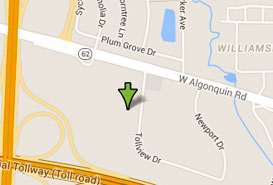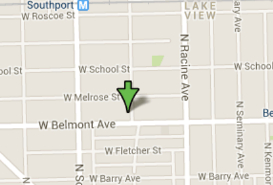Family Counseling
Family Therapy involves two or more members of a family and functions under the belief that the family unit is a unique system with its own patterns and styles of communication. The function of a family system is based on the beliefs and values of the parents, the personalities of all the family members, and outside influences like extended family, friends, and media. When anything happens, good or bad, to one family member, all the other member of the familial system are also affected. It’s like a smaller scale Butterfly Effect.
Typically when there is a symptom exhibited by a particular family member, it is indicative of some sort of conflict or change within the family as a unit. We encourage all family members to take responsibility for problems and to work to change personal behaviors that may be contributing to the primary issue at hand. We do recognize that some individuals may need to change behaviors more than others, but the focus is always on how the family as a whole can grow and move forward as a cohesive unit. At Chicago Counseling Collaborative we know how important family is and we are always happy to help a family improve their structure, dynamic, and communication.
Family therapy is a very active type of therapy, much more so than individual counseling, mainly because there are more people in the room. We have seen many families seeking treatment for very specific reasons such as grief/loss or the presence of a chronic mental illness, but we have also experienced lots of families reaching out simply because something is just not working. A family may not be able to quite put their finger on what is going on but they have a desire to just function better. It is also helpful for families to plan ahead and enter therapy when they know a major change or transition is approaching. Coming in for family counseling before something has occurred will better prepare all family members for the transition and help to define ways to help and support each other through the change.
As 3C therapists we are committed to helping your family through any barriers that may arise. We believe all families have the capacity for growth and positive change no matter what their past looks like. Our hope is to set you on the right path and provide you with the tools you will need to happily and healthfully navigate life challenges together as a family unit.
Benefits & Takeaways from Family Therapy:
- Family Function – Achieve a greater understanding of how your family functions overall and work together to break negative patterns and cycles.
- Focus on Strength – Identify strengths within the family system and focus on how the family strengths as well as those of the individuals can help bring the family closer.
- Goal Setting – Set goals and develop strategies to resolve challenges your family struggles with.
- Better Communication – Communication is the most important tool we have in relationships. Improving your ability to communicate and express needs with your family members with result in a stronger, healthier family system.
- Heal Wounds – Both recent and past wounds need healing. In particular, looking into the past can help address issues that remain from a parent’s families of origin or multi-generational family concerns that are still present. By addressing these issues with your current family they will better understand this important history and you can all move forward together.
- Express Needs Safely – A therapy room provides a family with a safe place to express their needs to the other members of their families.
- Individual Issues – Issues that one family member has affect and are affected by the family system. In having multiple family members in the room an individual’s issues can be more fully addressed.
- Increase Closeness – Through family therapy closeness between family members can be greatly increased which only enhances individuals’ abilities to communicate and express needs.
Common Reasons to Seek Family Therapy:
- Parental Conflict – When parents have a hard time getting along or working together this can negatively affect the children in the household.
- Separation / Divorce – When parents separate or end a union this can be incredibly stressful for the family. Even if parents choose to end their romantic relationship amicably this is a major change that the family must undergo.
- Behavior Problems – Children often times exhibit behavior issues at home or school when there is change or conflict in the home.
- Fighting between Children – Often times children will fight as a way to distract from familial or parental issues, but sometimes the answer is as simple as conflicting personalities or hormones.
- Mental Illness – When one family member suffers from a chronic mental illness like depression or substance abuse all member are affected.
- Grief and Loss – The loss of a loved one (human or pet) can rock the family system to the core. Learning to move on together without the presence of that loved one can be a challenging, but empowering process.
Types of Therapy Used:
- Psychodynamic – Uncovers and assists in fully experiencing painful and/or traumatic events that have been pushed out of our conscious awareness
- Internal Family Systems – As we move through life our positive and negative experiences contribute to our different “parts” within our psyche that all play a role in self-preservation.
- Narrative Therapy – Our identities are formed by our experiences and it is important to separate our negative experiences (problems) from ourselves in order to resolve them. We have problems, but we are not defined by our problems.
- Object Relations – Our relationships as adults are shaped by our relationships starting as infants. As an infant we identify “objects” as representations of people in our lives. A “good” caring hand that rubs our back when we are sick or a “bad” mouth that yells at us are examples of objects that can eventually grow to represent people that cared for us as infants and young children.
- Emotionally Focused Therapy – Focuses on emotions and their healing power in the here and now while looking at how problems happen rather than why.
- Self Psychology – The therapists relationship with the client is one of empathy and understanding unmet developmental needs are explored and processed.
- Systems Theory / Therapy – Helps a couple, family, group, or community to understand the role each member plays and how they relate back to the functionality of the system as a whole.





